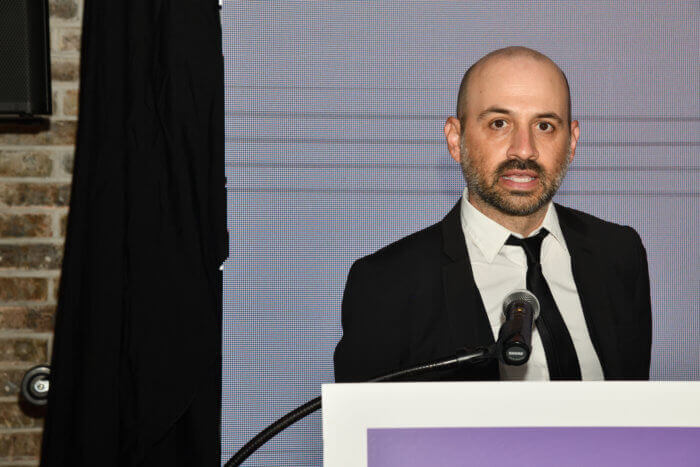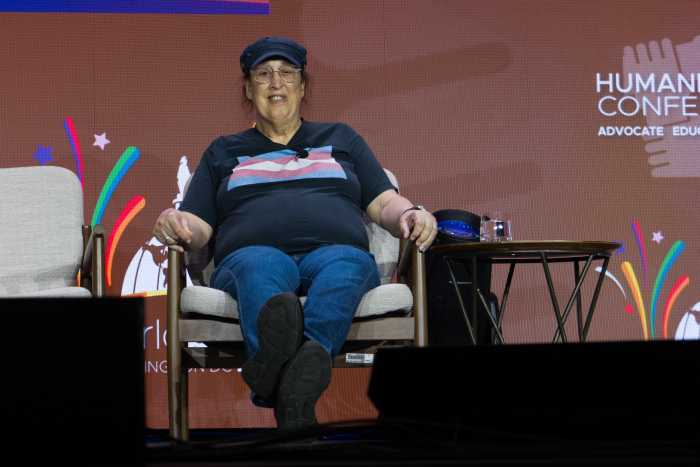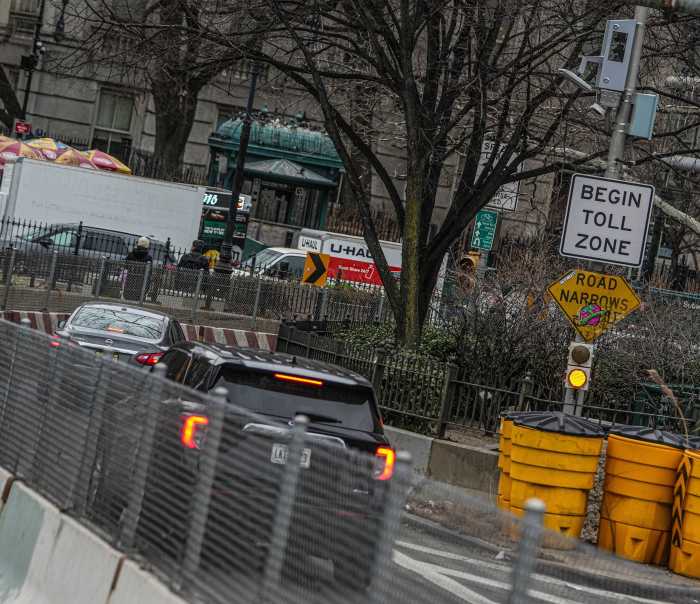LGBTQ individuals have been among those swept up in the Trump administration’s aggressive crackdown on immigration, which is especially hurting asylum seekers fleeing hardship in other parts of the world.
Much of the attention as of late has been focused on the Trump administration’s deportation of 238 Venezuelan migrants to a prison in El Salvador — and one of those individuals included Andry Hernandez Romero, a gay makeup artist who was forced to leave Venezuela due to his sexual orientation and political views, according to NBC News. The US government sent him to El Salvador because they believed the crown tattoos on his wrists were tied to a gang, even though his family said the tattoos represent a symbol of the Three Kings festival.
Concerns over the Trump administration’s approach to immigration continued to escalate on April 14 when the president, during a White House gathering with El Salvadorian president Nayib Bukele, suggested he would like to deport “homegrown criminals.” The statement came just days after White House press secretary Karoline Leavitt indicated that the Trump administration would seek to deport US citizens who are violent criminals “if there’s a legal pathway to do that.”
Regardless of citizenship status, those perceived to be criminals are not the only ones bearing the brunt of the new immigration policies. Aaron Morris, the executive director of Immigration Equality, a national non-profit organization dedicated to supporting LGBTQ and HIV-positive immigrants, said the Trump administration has largely shut down a refugee resettlement program and is working aggressively to prevent individuals from seeking protection at the southern border.
“It’s an enormous shift towards making it much more difficult for people to be undocumented or even for people with green cards in the US,” Morris said.

An app known as CBP One — which was used under the Biden administration to allow asylum seekers to schedule immigration interviews — has been tossed by the Trump administration, leaving many immigrants in limbo.
“[The CBP One app] was imperfect, to say the least, but people who had interviews scheduled — all of it is canceled,” Morris explained. “They discontinued the app.”
Some individuals, Morris said, had already received preliminary refugee status or were scheduled to fly to the United States, but were then told they could not come.
“We were working with LGBTQ people in seriously dangerous places who believed there was a way out,” Morris said.
A report issued earlier this year by the Williams Institute at UCLA School of Law found that up to 3% of non-citizens — or 640,000 people — in the United States identify as LGBTQ, including up to 288,000 undocumented immigrants. A previous Williams Institute report found that 98% of asylum claims based on LGBTQ status were deemed credible or reasonable.
There are also unique concerns about the fate of transgender and non-binary immigrants, including when it comes to identification documents. Individuals who are trans or non-binary and already have a valid ID issued by the US government can continue to use it and the government will continue to recognize it until it expires. However, the government will refuse to recognize trans and non-binary individuals in their gender when they seek to renew those documents.
“It puts the person in an untenable position,” Morris said, noting that immigrants are required to swear the truth on those documents.
And yet, despite overwhelming adversity, there are some glimmers of hope for immigrants. Morris said his organization is still seeing successful cases, including in the last week, of transgender individuals proving their case to achieve legal status in the United States.
“At the macro level, the law is very settled and strongly in favor of the LGBTQ community where asylum is concerned,” Morris said. “For more than 25 years, LGBTQ status has been protected, and in every circuit court, LGBTQ people have been determined to be a minority status that deserves protection.”
Some individuals seeking asylum, Morris said, are scaling back activities in daily life out of fear, while others are feeling emboldened and activated to rise to the moment. More than anything, though, Morris said many immigrants hope to see US citizens use their voice to speak out about the issue.
“I really feel that now is the time for American people to focus on the importance of the rule of law and due process, and to really push hard back against any administration that ignores or takes advantage of them,” Morris said. “They’re really, really testing the waters here.”




































